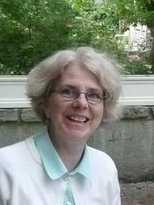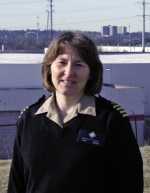NORA Services Sector Program Archive
NOTE: This page is archived for historical purposes and is no longer being maintained or updated.
Letter from Manager, Services Sector Program
February 9, 2012
Dear Services Sector Stakeholders,
The NORA Services Sector is a highly diverse sector with nearly 65 million U.S. workers distributed across 11 major NAICS industry groups. The work accomplished by these workers, day after day, is even more diverse. While we can celebrate their contributions to the well-being of all of us, we know that some jobs and tasks have inherent risks. The National Services Agenda reflects what is known about those risks, what gaps in knowledge are most important to remedy, and what existing intervention and prevention information can be delivered to workers and their supervisors in order to mitigate or eliminate the risks.
An important priority for the Sector is to address needs of workers who experience disproportionate incidence of occupational injuries and illnesses. Other important issues that cut across much of the services industry include occupational stress and musculoskeletal disorders. Numerous services occupations and industries continue to pose health risks from chemical, physical and biological hazards. Finally, while many can easily recognize the potential for workplace violence in banks and among public safety workers, the risk for homicide is great for workers in the restaurant, hotel, automotive repair, and laundry industries.
Reduction of occupational disease and injury relies on effective partnerships between academia, industry, labor, trade associations, and other government agencies. Thanks to our many partners who have already contributed to the agenda and helped ensure that its goals are relevant to workers across the sector and to those working on projects and activities that address the priority goals selected by the NORA Services Sector Council.
We welcome comments on the sector goals and the future direction of research and prevention activities. Please contact us through email or our web site with your ideas on creating a healthful work environment for all services workers.
Terri Schnorr, Ph.D.
Director, Division of Surveillance, Hazard Evaluations, and Field Studies, NIOSH
Manager, NIOSH Services Sector Program
NORA
The National Occupational Research Agenda (NORA) is a partnership program to stimulate innovative research and workplace interventions. In combination with other initiatives, the products of NORA are expected to reduce the occurrence of injuries and illnesses at work. NORA entered its second decade (2006-2016) embracing the concept that occupational research and translation efforts be oriented around specific industrial groups or sectors.
Services Sector
The Services Sector is one of ten such groupings within NORA. It is a highly diverse sector with over 65 million U.S. workers distributed across 11 major NAICS industry groups including Information; Education, Arts, Entertainment and Recreations; Accommodations and Food Services; and Public Administration.
NIOSH Services Sector Program
The mission of the National Institute for Occupational Safety and Health (NIOSH) research program for the Services Sector is to eliminate occupational diseases, injuries, and fatalities among persons working in these industries through a focused program of research and prevention. The Services Sector will continue to evolve as new technologies and products are brought into the marketplace and the workplace. Through the cooperative efforts of workers, management, labor, practitioners and scientists, NIOSH will continue to reduce the economic and personal impact of occupational disease, disability, and death through high-quality research and effective prevention strategies.
The NIOSH Services Sector Program uses some NIOSH resources to facilitate the work of the NORA Services Sector Council. The Services program also tracks impacts achieved by NIOSH projects and partner efforts in support of sector goals.
NORA Services Sector Council
The NORA Services Sector Council sets national priorities and facilitates the development of partnerships to improve occupational safety and health in the Services Sector. The Council members represent diverse interests from academia, state, federal, and local governments, labor unions, non-profits, and trade associations. The Council is co-led by a NIOSH representative and an individual from outside of NIOSH. The Sector Council also draws on an active group of corresponding members who participate in ad hoc working groups to help implement action plans developed for specific priority goals.
National Services Agenda
The National Services Agenda was created by the NORA Services Sector Council based on broad public input. The agenda established many strategic goals and has implementation and activity/output goals for recommended actions on the part of many partners and stakeholders. The agenda helps guide research and intervention activities at NIOSH and for our partners and stakeholders.
Sector and Council Leadership Information
Terri Schnorr, Ph.D.
NIOSH Services Sector Program Manager
CDC/NIOSH – Director, Division of Surveillance, Hazard Evaluations, and Field Studies
Tschnorr@cdc.gov, (513) 841-4428

Teresa Schnorr is a Division Director at the National Institute for Occupational Safety and Health (NIOSH). She directs the Division of Surveillance, Hazard Evaluations, and Field Studies, which conducts workplace surveillance, epidemiologic and exposure assessment research, and individual worksite evaluations. She has conducted occupational epidemiologic research at NIOSH for 27 years. Interests include occupational epidemiology of cancer and reproductive health and occupational health and exposure surveillance. Her research has included studies of: pregnancy outcomes among women using computers and among wives of men occupationally exposed to dioxins; the effect of workplace chemicals on hormones and immune function; cancer among workers exposed to workplace hazards such as uranium, cadmium, polychlorinated biphenyls, and sulfuric acid and; neurodegenerative disease from workplace exposures. Dr. Schnorr received her B.A. in Anthropology and B.A. in Biology from Indiana University and her M.S. and Ph.D. in Epidemiology from the University of Pennsylvania.
Cherie F. Estill, PhD
NIOSH Services Sector Program Coordinator
NORA Services Sector Council Co-Chair
CDC/NIOSH – Industrial Hygiene Supervisor, Division of Surveillance, Hazard Evaluations, and Field Studies
CEstill@cdc.gov, (513) 841-4476

Cheryl F. Estill has been with NIOSH for over 25 years. She has bachelor’s and master’s degrees in Industrial Engineering from Purdue University and Virginia Tech, respectively. She is currently working on her doctoral degree in industrial hygiene and environmental health from the University of Cincinnati. She started with NIOSH in the engineering group doing research projects on control technology for furniture stripping, nail salons, agriculture, and household appliance manufacturing. She then transferred to the ergonomics group to conduct research on musculoskeletal disorders within the construction industry. Now she is an Industrial Hygiene Supervisor with the Industrywide Studies Branch in the Division of Surveillance, Hazard Evaluation, and Field Studies. Her research topics have included b. anthracis aerosolization and sampling, noise in manufacturing, and worker’s compensation.
Barbara Materna, PhD, CIH
NORA Services Sector Council Co-Chair
California Department of Public Health

Barbara Materna, PhD, CIH, has been with the Occupational Health Branch in the California Department of Public Health (CDPH) since 1989. She currently serves as Chief of this statewide occupational public health program that investigates workplace hazards, tracks selected work-related injuries and illnesses, provides information and technical assistance to promote safer workplaces, and recommends more protective occupational health and safety standards. Dr. Materna, a certified industrial hygienist, previously led CDPH’s Occupational Lead Poisoning Prevention Program, one of the state-based programs coordinated nationally by NIOSH under its Adult Blood Lead Epidemiology and Surveillance (ABLES) program. In addition to her work focused on lead industries, she has conducted occupational health research and intervention activities on dry cleaners and perchloroethylene exposure, refuse collector injury reduction through mechanized processes, respiratory exposures of wildland firefighters, and respiratory protection for aerosol transmissible diseases. Dr. Materna has a B.S. in Chemistry from the University of Rochester, an M.S. in Environmental Health Sciences from Hunter College, City University of New York, and a Ph.D. in Environmental Health Sciences from the University of California at Berkeley.
Hope M. Tiesman, PhD
NIOSH Services Sector Program Assistant Coordinator
CDC/NIOSH – Epidemiologist, Division of Safety Research
HTiesman@cdc.gov, (304) 285-5913
 Hope Tiesman joined NIOSH in 2007 as an epidemiologist with the Division of Safety Research (DSR). Prior to coming to NIOSH, she worked as a health scientist in the Department of Veterans Affairs where she developed and evaluated various occupational injury prevention programs and was a fellow in the occupational injury prevention research program at the University of Iowa’s Heartland Center for Occupational Health & Safety. At NIOSH, her research focuses on motor-vehicle crashes among law enforcement officers and workplace violence prevention among educators.
Hope Tiesman joined NIOSH in 2007 as an epidemiologist with the Division of Safety Research (DSR). Prior to coming to NIOSH, she worked as a health scientist in the Department of Veterans Affairs where she developed and evaluated various occupational injury prevention programs and was a fellow in the occupational injury prevention research program at the University of Iowa’s Heartland Center for Occupational Health & Safety. At NIOSH, her research focuses on motor-vehicle crashes among law enforcement officers and workplace violence prevention among educators.
Dr. Tiesman completed her MSPH in Epidemiology from the University of South Florida and her PhD in Epidemiology from the University of Iowa. She has an adjunct academic appointment in the West Virginia University (WVU) College of Public Health and research appointment in the WVU Injury Control Research Center.
- Page last reviewed: August 13, 2013 (archived document)
- Content source:
- National Institute for Occupational Safety and Health (NIOSH) Office of the Director


 ShareCompartir
ShareCompartir